
Johann David Ludwig Graf Yorck von Wartenburg was a Prussian Generalfeldmarschall instrumental in the Kingdom of Prussia ending an alliance with France to form one with Russia during the War of the Sixth Coalition. Ludwig van Beethoven's "Yorckscher Marsch" is named in his honor.

Margarete Emma Dorothea "Grete" Mosheim was a German film, theatre, and television actress.
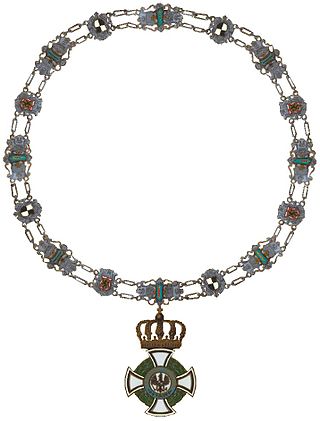
The House Order of Hohenzollern was a dynastic order of knighthood of the House of Hohenzollern awarded to military commissioned officers and civilians of comparable status. Associated with the various versions of the order were crosses and medals which could be awarded to lower-ranking soldiers and civilians.

Werner Johannes Krauss was a German stage and film actor. Krauss dominated the German stage of the early 20th century. However, his participation in the antisemitic propaganda film Jud Süß and his collaboration with the Nazis made him a controversial figure.
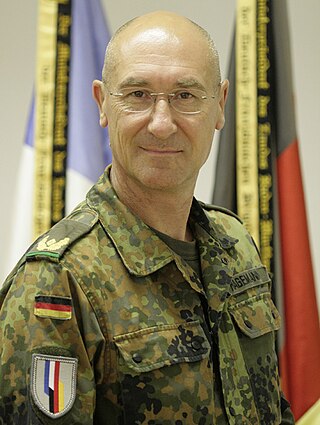
General of the Infantry is a former rank of the German army. It is currently an appointment or position given to an OF-8 rank officer, who is responsible for particular affairs of training and equipment of the Bundeswehr infantry.
Events in the year 1904 in Germany.

Bismarck is a 1940 German historical film directed by Wolfgang Liebeneiner and starring Paul Hartmann, Friedrich Kayßler, and Lil Dagover.
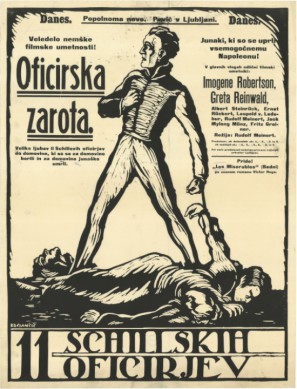
The Eleven Schill Officers is a 1926 German silent historical film directed by Rudolf Meinert and starring Meinert, Gustav Adolf Semler, Grete Reinwald, and Leopold von Ledebur. The film depicts the failed 1809 uprising of Prussian soldiers led by Ferdinand von Schill against the occupying French during the Napoleonic War. The film received poor reviews from critics, but earned enough at the box office to offset its production costs.

I by Day, You by Night is a 1932 German musical comedy film directed by Ludwig Berger and starring Käthe von Nagy and Willy Fritsch. It was shot at the Babelsberg Studios and on location at the Sanssouci Palace in Potsdam. The film's sets were designed by the art director Otto Hunte. It premiered in Berlin on 29 November 1932.

Young Blood is a 1926 German silent drama film directed by Manfred Noa and starring Lya De Putti, Walter Slezak and Angelo Ferrari. The film's art direction was by Oscar Friedrich Werndorff. It premiered in Berlin on 23 March 1926.

Assassination is a 1927 German silent thriller film directed by Richard Oswald and starring Eduard Rothauser, Mathilde Sussin and Hans Stüwe. It was adapted from a novel by Vicki Baum. It was shot at the EFA Studios in Berlin. The film's art direction was by Gustav A. Knauer.
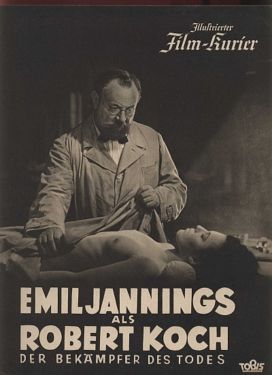
Robert Koch is a 1939 Nazi propaganda film directed by Hans Steinhoff and starring Emil Jannings, Werner Krauss and Viktoria von Ballasko. The film was a biopic of the German pioneering microbiologist Robert Koch (1843–1910). It was shot at the Johannisthal Studios in Berlin and premiered at the city's Ufa-Palast am Zoo. The film was made by the Tobis Film company, and was also distributed in the United States by the largest German studio UFA.
Adam and Eve is a 1923 German silent drama film directed by Friedrich Porges and Reinhold Schünzel and starring Werner Krauss, Dagny Servaes and Rudolf Forster.

The Kwannon of Okadera is a 1920 German silent film directed by Carl Froelich and starring Lil Dagover and Werner Krauss. Produced by Erich Pommer of Decla-Bioscop it was shot at the Babelsberg Studios in Berlin and premiered in the city's Marmorhaus.

Court Theatre is a 1936 Austrian drama film directed by Willi Forst and starring Werner Krauss, Carl Esmond and Hortense Raky.
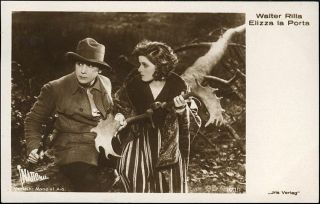
The Sporck Battalion is a 1927 German silent war film directed by Holger-Madsen and starring Otto Gebühr, Walter Rilla and Grete Mosheim. Hans Albers is sometimes added in some cast lists, but his performance is unconfirmed. It was shot at the Weissensee Studios in Berlin. The film's sets were designed by the art director Max Knaake. It was remade as a sound film of the same title in 1934.
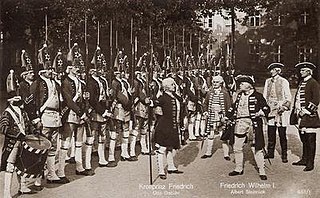
Fridericus Rex is a 1922 German silent historical film directed by Arzén von Cserépy and starring Otto Gebühr, Albert Steinrück and Gertrud de Lalsky.
What the Stones Tell is a 1925 German silent historical war film directed by Rolf Randolf and starring Ernst Rückert, Fritz Greiner and Eduard von Winterstein. The film portrays the Lützow Free Corps of the Napoleonic Era. Its title references a poem about the unit, and is part of the tradition of Prussian films.















